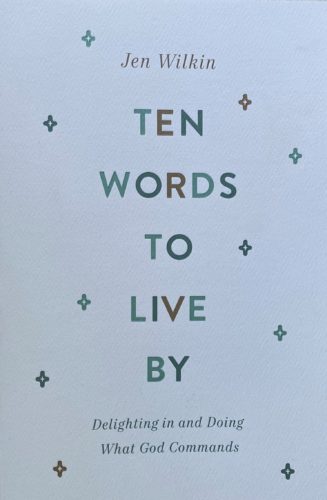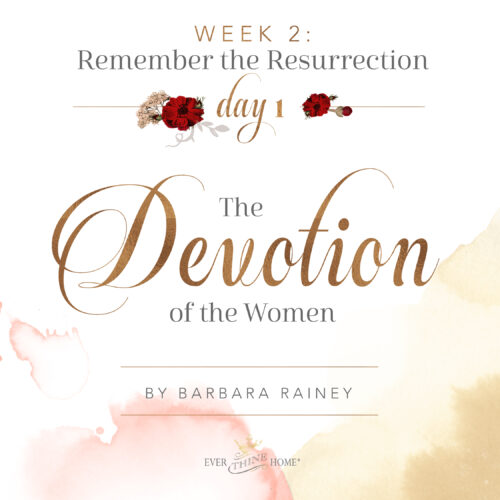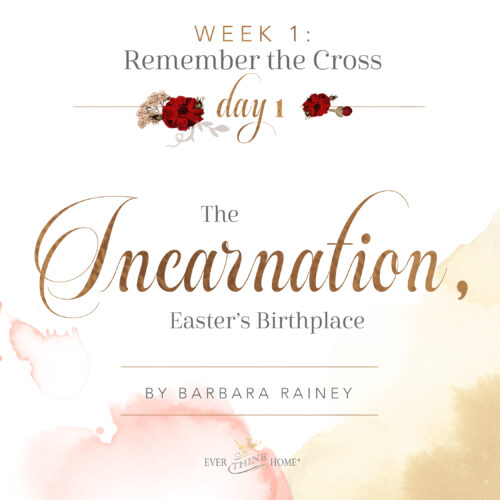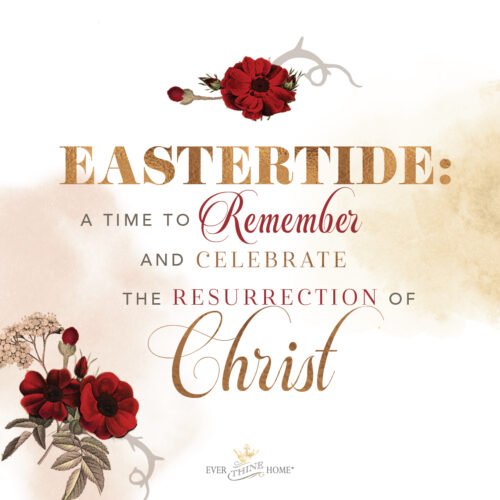
Note from Barbara: This summer I’m going to be sharing some books with you that will feed your own soul, help you invest spiritually in your kids or benefit your marriage in some way. The change of pace in the summer is a good time to make reading a priority.
The first of these recommendations is Bible teacher Jen Wilkin’s newest book, Ten Words to Live By, a fresh look at the centrality and eternality of the Ten Commandments. These words spoken by God to Moses are reflected throughout the Bible in the writings of Paul, Peter, and the other authors of the 66 books. Understanding God’s heart and desire behind His Words reveals His love for us His children and motivates us to want to please Him more.
The post below is an excerpt from her book, a taste to better understand these ten essentials for the Christian life. — Barbara
“Rules enable relationship.” The Ten Words graciously position us to live at peace with God and others. The Great Commandment, the one which Jesus says sums up all 611 of the general and specific laws of the Old Testament, bears this out:
“You shall love the Lord your God with all your heart and with all your soul and with all your strength and with all your mind, and your neighbor as yourself” (Luke 10:27).
The Great Commandment is the underlying principle for all right living.
Not surprisingly, the Ten Words follow the same pattern of Godward lawfulness first, and manward lawfulness second. The Ten Words are encouraging words, meant to give us hope—hope that we will live rightly oriented to God and others, hope that we will grow in holiness. They are not given to discourage but to delight. They are no less than words of life.”
A closer look at the first commandment
The first commandment, “You shall have no other gods before me,” is spoken in the language of a sovereign to a servant. There can be no dual allegiances when it comes to serving Yahweh. By commanding a singular allegiance, God does not merely assert that he is superior to other gods. Nor, in the plagues, does he merely demonstrate that he is stronger than other gods. He declares that they do not exist. They are nothing more than the vain imaginings of a darkened mind. The first word is more than a prohibition against worshiping lesser gods; it is an invitation into reality. “I am the Lord, and there is no other, / besides me there is no God” (Isaiah 45:5).
Why should Israel worship no other gods before God? Because there are no other gods.
Maybe that seems obvious. God has just routed his people’s greatest enemy and put their nonexistent gods to shame. But the truth that there is only one God to be worshiped must settle deep into the bones of the people of Israel, for God has brought his children victoriously out of polytheistic Egypt for the purpose of leading them victoriously into polytheistic Canaan.
After four hundred years in Egypt, polytheism would be more familiar to Israel than the monotheism the first word expresses. It would feel more natural than the singular worship God commands, as sin in comparison to righteousness so often does. The land just across the Jordan beckons with the comfortable familiarity of many-god worship. The likelihood that Israel would return to the familiar is high.
The call to monotheism would not be a new idea to Israel at the foot of Sinai. The creation account of Genesis 1 contains the implicit command to worship only God. Like the ten plagues, the six days of creation are purposely worded to topple any notion of worshiping sun, moon, stars, earth, sea, sky, plants, animals, or humans. All of the heavens and earth are shown to be derivative, dependent upon, and in service to the God without origin who effortlessly speaks them into existence.
But God’s people forget that pretty quickly. As early as chapter 35 of Genesis, we encounter a cautionary tale of divided worship among the children of God. It seems that between his exile in Paddan Aram and his return to Bethel, Jacob and his family had picked up a few household idol stowaways in their saddlebags. Though God has not explicitly commanded it, Jacob knows the idols must go:
So Jacob said to his household and to all who were with him, “Get rid of the foreign gods you have with you, and purify yourselves and change your clothes. Then come, let us go up to Bethel, where I will build an altar to God, who answered me in the day of my distress and who has been with me wherever I have gone” (Genesis 35:2-3, NIV).
The presence of idols among Jacob’s family points to the operation of a “both-and” mentality: yes, we will serve Yahweh, but also, just in case, we will offer devotion to these other gods, as well.
Dual allegiance. Can you relate?
This mentality hides in the baggage of believers today just as it did in Jacob’s family three thousand years ago. It’s an age-old expression of what James 1:8 refers to as double-mindedness. Double-mindedness occurs not because we replace God with an idol, but because we add an idol to our monotheon so that it becomes a polytheon. The repeated refrain on idolatry throughout Israel’s history will not be that she ceases worship of God entirely, but that she ceases worship of God alone.
An expansive obedience
The children of Yahweh today are not so different from the children of Yahweh then. Like Israel, we affirm that there are no other gods verbally and intellectually, but not practically.
Practically, we live as polytheists. Our idolatry is a “both-and” arrangement: I need God and I need a spouse. I need God and I need a smaller waist size. I need God and I need good health. I need God and I need a well-padded bank account.
In our minds, we rationalize that the “both-and” still offers God some form or degree of worship, so everything must be okay. Yet, according to Genesis and Exodus, to cease to worship God alone is to corrupt any worship still offered to him.
In Matthew 6:24, Jesus teaches us that “no one can serve two masters, for either he will hate the one and love the other, or he will be devoted to the one and despise the other.” We may think dual allegiance is desirable, but Jesus assures us it is not even possible. We are created for single-minded allegiance. We are designed for it. We are made in the image of one God, to bear the image of one God. We cannot conform to both the image of God and the image of an idol.
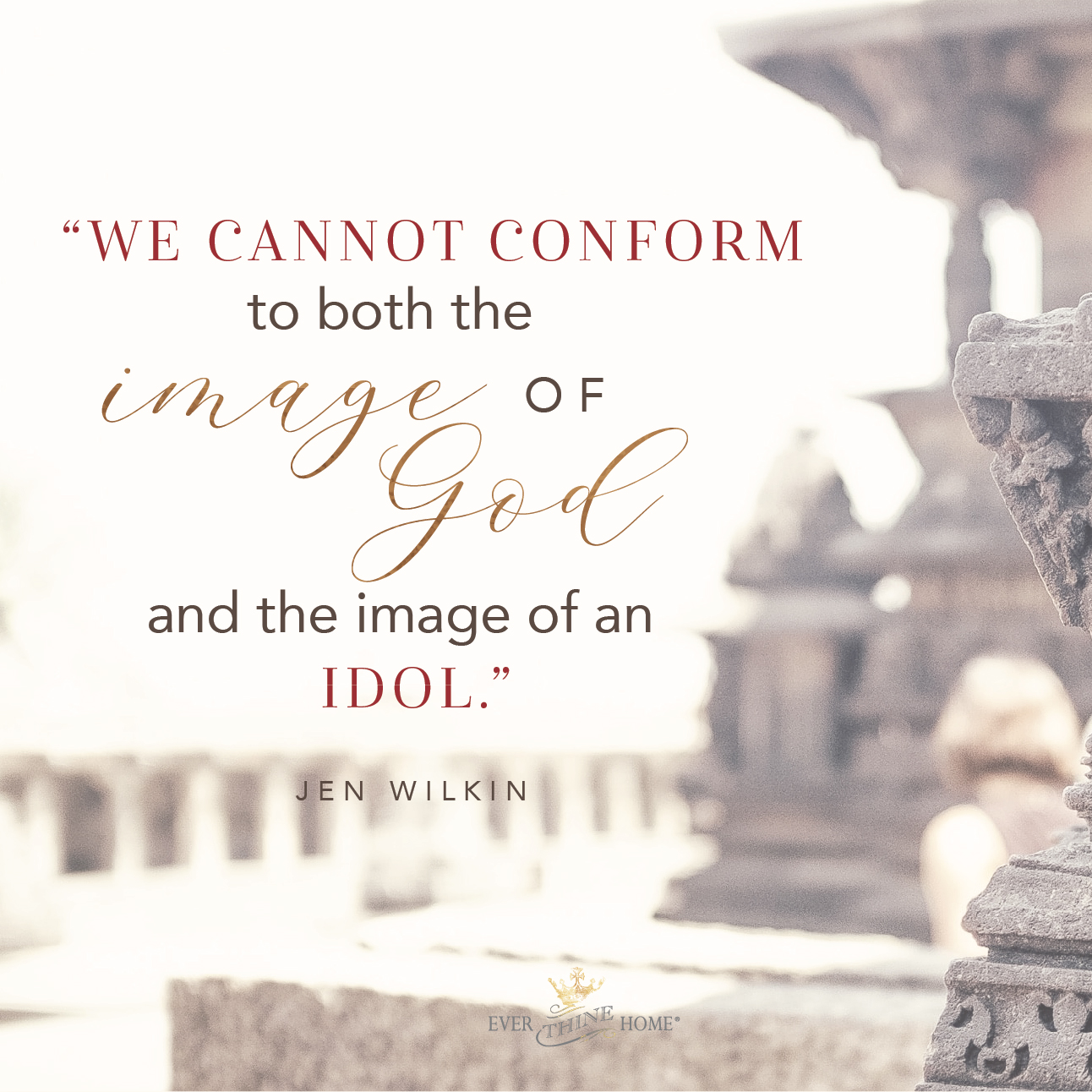
We are not designed to be polytheists, nor can we sustain the weight of a many-God lie in our minds. When we cling to God- and-______, we become “unstable in all [our] ways” (James 1:8).
It often takes a crisis to point out our folly. There is nothing like a financial crisis to teach us our worship of money and comfort in addition to God. There is nothing like a wayward child or a divorce to teach us our worship of having a perfect family in addition to God. There is nothing like the aging process to teach us our worship of health and beauty in addition to God.
It is at just such a crisis point that we find Jacob ready to expel the household idols. Penitent, he has just come face-to-face with his own failures. His daughter had been violated, and his sons had responded with terrible vengeance when he himself failed to seek justice. Jacob is a man broken of his self-reliance and soured on his own cunning. He is a man familiar with crisis. He is a man at last learning to pledge allegiance to God alone.
Whatever instability may be needed to bring us to repentance, the final solution to our practice of polytheism is found in Jacob’s story: “So they gave Jacob all the foreign gods they had and the rings in their ears, and Jacob buried them under the oak at Shechem” (Genesis 35:4, NIV).
Jacob could have destroyed the idols in any way. He might have burned them, thrown them in a lake, or hacked them to bits. Instead, he buries them under a landmark tree known as a place of idol worship. Determined to put the past behind him and live in the truth that God is his only hope, Jacob symbolically holds a funeral for the idols in the very place they were typically worshiped. With pointed irony, the place for idol worship symbolically becomes a burial ground for it.
Do not miss the moral of the story: to rid ourselves of our idols, we must put them to death.
*Bill T. Arnold, Encountering the Book of Genesis (Grand Rapids, MI: Baker, 2004), 137.
Content taken from Ten Words to Live By by Jen Wilkin, ©2021. Used by permission of Crossway.
Jen Wilkin is a Bible teacher from Dallas, Texas. As an advocate for biblical literacy, she has organized and led studies for women in home, church, and parachurch contexts and authored multiple books, including the best seller Women of the Word. You can find her at JenWilkin.net.

